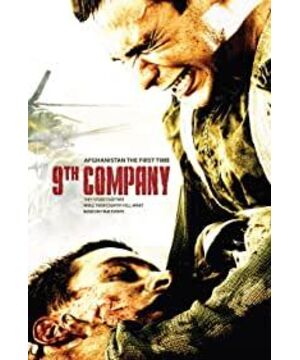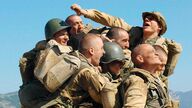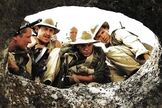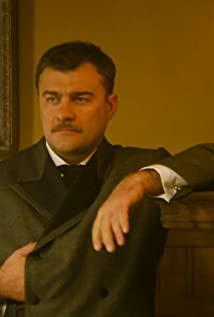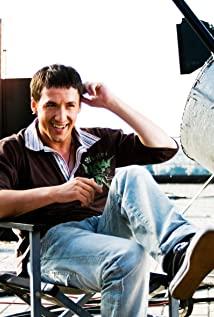The origin of watching this movie is a bit twisted. At the beginning, because Alexievich won the Nobel Prize for Literature, I went to read her "The Zinc Skin Baby Soldier". Seeing that it was shot by Russia, my first reaction was to wonder about Russia's position on that war. The movie is really long, 139 minutes, and it took two nights to watch it. It was just slightly split, the depression in the first half and the bloody sadness in the second half. After watching it, there is a lot of melancholy. The depression and hesitation in "The Zinc Skin Boy Soldier" is really sad to read. In an age of disillusionment, war can only create distorted human nature. Same as in the movie. In the first half, these child soldiers fully practiced the word "beat". The boring barracks life, their fights, drugs, promiscuity, cynicism and madness made me sigh, only suspecting this is a pure anti-war movie. Depressed, almost unable to keep watching. The return to traditional war narratives in the second half also gave me a sigh of relief. The same is the sadistic brotherhood, the romance of iron and blood, the courage and moving before death, and the tragic beauty of hand-to-hand combat. The innocence and firmness of the human nature of the "baby soldiers" in the first half emerged one after another. read it twice. When watching Zinc Skin Baby Soldiers, I kept thinking, even if the war in Afghanistan was wrong, are these soldiers at fault? I thought I was fighting a great war like the Great Patriotic War, but when I returned to China, I was regarded as a shame. Then in two years, the country he fought for doesn't even exist anymore. What is the blood and tears that he shed, the life lost of his comrades in arms? Whether they can become heroes or not depends not on whether they fought bravely, but on the nature of that war. If that war was wrong, are the warriors who went to war also wrong? In the movie, the child soldiers fought so heroically that I could hardly believe that they were the ones who went crazy on the eve of the battle. In the end, the former child soldier has a face full of wind and frost. A country has fallen, but they have to continue to live. Whether the war was right or wrong. All gone. So I don't ask right or wrong anymore, I just think the second half of the war scene is enough to move me and it's fine. ———————————————————————— The brain hole suddenly opened. Isn't this a picture of all of us? We, who cannot control the great era, cannot actually judge the right and wrong of this era, nor can we foresee the judgment of this era and us in the future.
View more about 9th Company reviews


